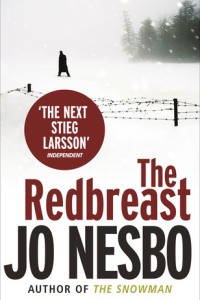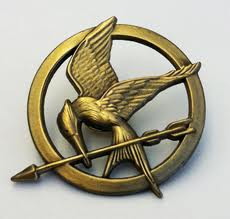“How will I ever get out of this labyrinth?” — Simón Bolívar
 Title: Looking For Alaska (Goodreads)
Title: Looking For Alaska (Goodreads)
Author: John Green
Published: Puffin, 2005
Pages: 221
Genres: Young Adult
My Copy: Paperback
Buy: Amazon, Book Depository (or visit your local Indie bookstore)
I don’t think I’ve ever started a review with a quote, but these famous last words really are relevant to this book. Looking for Alaska tells the story of Miles; a kid obsessed with memorising famous last words. He is leaving a school where he has no friends to go to a boarding school. The reason; well according to Miles it is because of François Rabelais’ famous last words “I go to seek a Great Perhaps”. At this new school Miles experiences a lot of firsts, first friends, first cigarette, first kiss, first love and first heartbreak.
Alaska is the beautiful girl that Miles has a crush on and I can see why; she is a great character. She is an outspoken book nerd who, while she can get rather emotional, is the kind of female friend every high school boy dreams of having; obsessed with sex, flirting and teasing but ultimately one of the guys. But the thing I liked about Miles and Alaska (as well as the other characters) is their emotions and the way they act seem so familiar. It is easy to connect and understand what they are going through. It is hard to get the emotions right, and make them feel real; I know most YA books miss this completely but John Green makes it look so easy.
I really connected with Looking For Alaska, and I could probably talk about the awkwardness of the characters (including the awkward blow job), the views on religion and philosophy and even the pranks and mischief they get up to; but I will leave that for the readers to discover. I think the main thing I took away from this book is the fact that John Green wrote a book exactly like the stories I’ve attempted to write when I was in high school. The feeling of loneliness, being a geek, having a crush; Green captured this perfectly and he showed me how an expert writes a YA book about love and lost. I know I’ve been on a bit of a John Green kick lately, I’ve even been watching his YouTube channel constantly but I don’t think this will stop anytime soon, I can’t wait to read another one of his books.

 Title: Talulla Rising (
Title: Talulla Rising ( Title: The Redbreast (
Title: The Redbreast ( Title: Beat The Reaper (
Title: Beat The Reaper ( Title: For The Win (
Title: For The Win (
 Title: Past The Shallows (
Title: Past The Shallows (

 5. Pop. 1280 by Jim Thompson
5. Pop. 1280 by Jim Thompson 4. Red Harvest by Dashiell Hammett
4. Red Harvest by Dashiell Hammett
 2. The Postman Always Rings Twice by James M. Cain
2. The Postman Always Rings Twice by James M. Cain 1. The Long Goodbye by Raymond Chandler
1. The Long Goodbye by Raymond Chandler  Title: The Man in the High Castle (
Title: The Man in the High Castle (